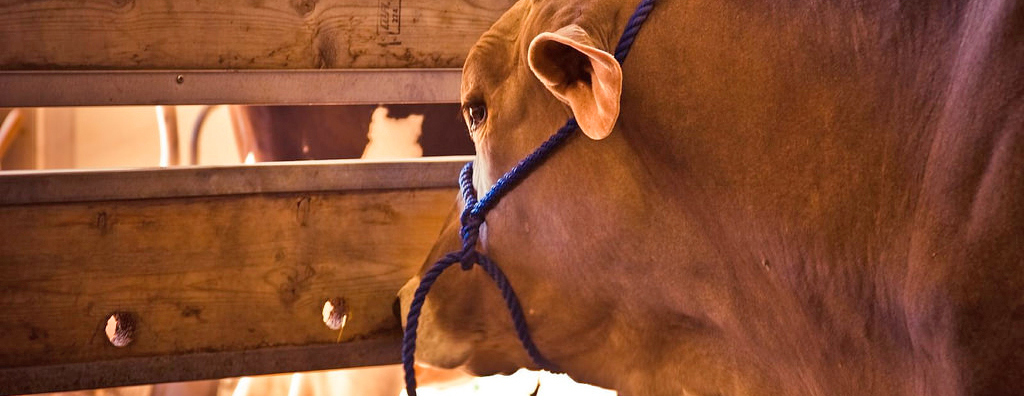
First Biogas Project Investment for Climate-Focused Carbon Investment Fund
Kasey Krifka, The Climate Trust
Live on P.R. Web – September 21, 2017
Climate Trust Capital’s first livestock digester investment funds clean energy and improved economic and environmental performance for California dairy
U.S.-based private investment fund Climate Trust Capital, an independent entity of the long-standing mission-driven nonprofit The Climate Trust, has reached agreement on its first carbon investment in the biogas sector—the West-Star North Dairy Biogas Project. Over $862,000 of Climate Trust Capital’s Fund I was invested in a covered lagoon digester that will destroy methane and produce carbon offsets under California’s cap and trade system. Fund I was launched in October 2016, seeded by a $5.5 million Program-Related Investment from the David and Lucile Packard Foundation, and supported by a Conservation Innovation Grant from the USDA’s Natural Resources Conservation Service.
“This has been an exciting year, with marked progress toward the deployment of the $5.5 million that makes up Climate Trust Capital’s Fund I,” said Sean Penrith, executive director for The Climate Trust. “We have officially made investments in each of our three preferred sectors—forestry, grassland conservation, and livestock digesters—and are pleased to see our investment strategy come to fruition with high-caliber partner, California Bioenergy. Climate Trust Capital looks forward to future investments in carbon that align with our conviction that carbon prices are undervalued and will provide investors with long-term, risk-adjusted returns,” continued Penrith.
The investment is based on the anticipated ten-year value of carbon credits from a livestock digester project located at West-Star North Dairy, a 1,500-acre farm in California’s San Joaquin Valley. Project partner, California Bioenergy LLC (CalBio), is one of California’s leading dairy digester development companies. CalBio has built three other dairy digester projects, including the State’s largest, with many more scheduled for development. This project investment is expected to begin generating carbon offsets in January 2018 with initial cash flow from the sale of these offsets in 2019.
“Realizing the potential cash flow from the future sale of a dairy digester’s environmental attributes is a complex process involving a high level of project expertise, careful monitoring, and the management of regulatory and market risk,” said Ross Buckenham, CEO for California Bioenergy. “The Climate Trust is a sophisticated carbon investor and together we are able to harness the value of these environmental benefits. The Climate Trust’s willingness to invest in a significant portion of the future attributes further reduces risks to the farmer and project. We are grateful for their support as well as the support of the California Energy Commission and the California Department of Food and Agriculture.”
“The need for capital when building a livestock digester project is in strong alignment with Climate Trust Capital’s investment thesis of providing an early-stage investment to catalyze projects,” said Kristen Kleiman, director of investments for The Climate Trust. “Digesters will make up a significant portion of Fund I’s portfolio, and we are pleased that our investment can play a critical role in getting quality projects off the ground, with an eye toward ensuring the best possible premiums from the sale of generated credits.”
Farms have historically flushed their manure into uncovered lagoons, which generate the greenhouse gas methane, and release it to the atmosphere. The West-Star North digester will treat the manure by installing CalBio’s patented dairy digester design—excavating two new lagoons in the process—and then covering the lagoons with a flexible, high-density polyethylene cover. Captured methane will be stored and then combusted in a high-efficiency generator that delivers renewable electricity to Pacific Gas and Electric. In addition, the digester will be double lined and enhance ground-water protection. Effluent from the digester will be used to irrigate fields and will also be part of a USDA drip irrigation study.
“Digester projects offer a host of beneficial revenue streams, from improving the economic and environmental performance of dairies, to clean energy, scheduled electricity delivery, improved soil nutrient management, and diverting waste from landfills,” said Peter Weisberg, senior portfolio manager for The Climate Trust. “Given the many co-benefits of operating a digester, it may not be surprising that over one-third of The Climate Trust’s offsets under contract since 2010 have been in the biogas sector.”
Climate Trust Capital’s Fund I is focused on investing in high-quality, U.S.-based carbon offset projects. Fund I will be the first in a series of Climate Trust Capital-led investment funds built to appeal to institutional and impact investors. The West-Star North project will be developed in accordance to the California Air Resources Board (ARB) Compliance Offset Protocol for Livestock Projects.
“We’ve made significant progress toward building and deploying our fund this year, with thirty percent already committed to quality projects that conserve critical grasslands, protect forest habitat, and provide clean energy,” continued Penrith. “Our team is passionate about providing a new source of capital for conservation projects, and we believe that making environmental credits a financeable asset class can result in paradigm shifts to help restore and protect our planet.”
Image credit: Flickr/Dawn Perry